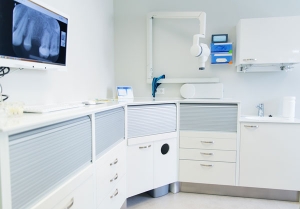When it comes to establishing a dental practice, one of the most critical decisions you’ll face is whether to buy or lease your office space.
Each option has its own set of advantages and disadvantages, impacting your financial risk, flexibility, and long-term business goals. This article explores the key factors to consider in the buy vs. lease debate for dental office spaces.
Buying Commercial Space
Property Ownership Pros and Cons
Buying a building or other commercial space provides flexibility over how to use the space, and the freedom to control the property, as you are, in essence, your own landlord. You also have the opportunity to build real estate equity. These are the primary benefits of buying.
On the other hand, buying commercial real estate comes with its own disadvantages and risks. First and foremost, buying a practice requires a large up-front financial investment. You will be taking on quite a lot of debt in the form of a mortgage, and of course there are risks associated with any real estate investment.
A dentist who purchases will also acquire a great deal more responsibility, and as a landlord/property manager, increased duties and obligations will take time and concentration away from the core business of dentistry.
Protecting Company “A” and Company “B”
Acquiring a commercial property is expensive and comes with certain liabilities. It is recommended to keep your real estate investment and dental practice as separate business entities so that it’s not “the dental practice” that is buying the real estate. This helps to maximize the value of each, and also separates the applicable responsibilities and liabilities. A properly structured dental office lease agreement should be created between the two businesses to provide further protection. This will be important should either be sold in the future.
Selling as a Property Owner
At the time of retirement/transitioning, a dentist who has purchased the property of their dental office either transitions into a landlord or sells the property. However, it’s often quite difficult to sell the dental practice and the real estate property to one buyer.
In the case of a dentist who leases their office space, as long as assignment provisions are well-negotiated in the dental office lease agreement before signing it, they will have the flexibility to sell their dental practice or transition out of it by transferring the practice to another dentist, risk and hassle-free.
Leasing Your Dental Office Space
Location, Location, Location.
Leasing a space for your dental practice is an ideal option for many reasons. First, location is a critical factor in the success of a dental practice. In many cases, the best locations may not have purchase opportunities. Buying may require you to select from a less desirable or lower-trafficked area, and ultimately, a less profitable location. Leasing may therefore be the best option for the success of your dental practice.
Inherent Flexibility
Leasing dental office space also gives you the flexibility to move, if needed. Although relocating a dental practice is expensive and not the most feasible route, there may be situations where it makes the most sense for your personal and professional goals. Perhaps the community/location has changed over the years and the demographic is no longer ideal for your practice. What if your business plans have changed you want to expand and require more operatories/treatment rooms? What about property depreciation and external influences that change over time?
Whatever the reasons may be, they were likely unknown to you at the time of signing your dental office lease agreement, making it important to fully understand the terms of your lease. With leasing, you could have the flexibility to move based on changes to your practice goals and the terms in your dental office lease agreement.
Working Capital
Buying real estate for your dental practice will tie up significant capital that could otherwise be used towards building out your practice, purchasing dental equipment, marketing, hiring/training staff, etc. Leasing a dental office space can alleviate the stress of some of these and other startup costs, allowing you to become profitable sooner. Consider whether investing in business development for your core business, the dental practice, will yield higher returns than investing in real estate.
Evaluating Buying vs. Leasing Dental Office Space
As you review the pros and cons of buying vs. leasing dental office space, you must also consider the stage of your dental practice, your future business plans, the financial resources available to you, and your comfort level with risk. Commercial real estate investments are certainly an added complexity that will shift capital, time, energy, and other resources away from your core business practice. By carefully weighing these factors and seeking professional advice, you can make an informed decision that supports the long-term success and profitability of your dental practice.





